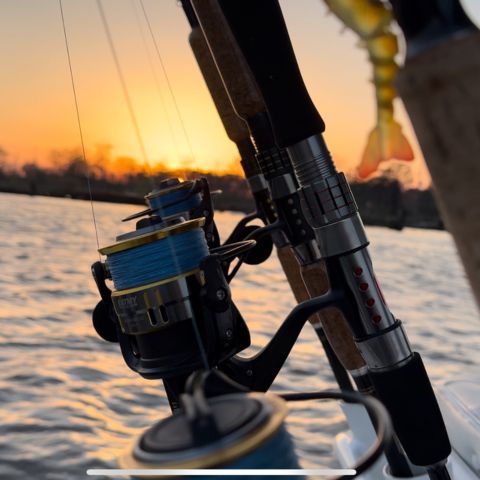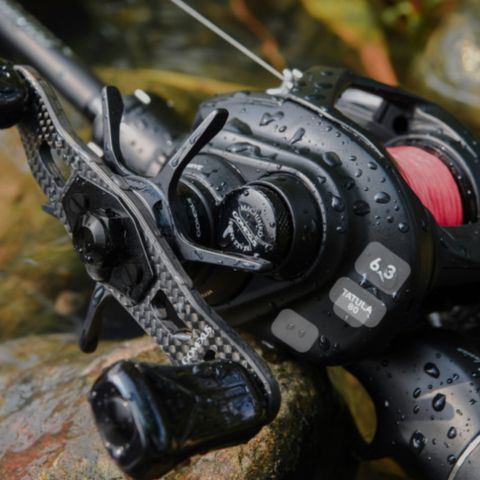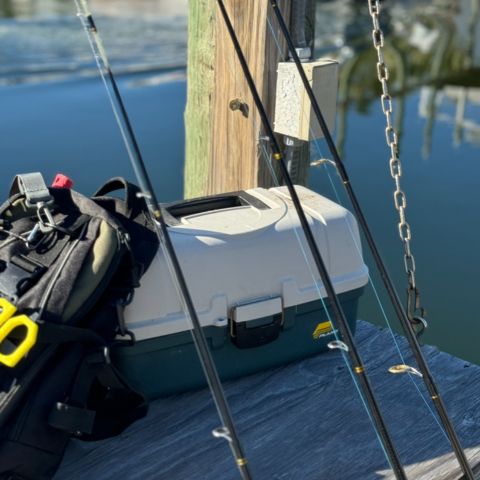
Growing up as a freshwater fisherman Hitting, Streams, Rivers and Lakes, in Northwest Georgia, I often wondered this exact question. The classic explanation for this question is that “Saltwater reels are just built more durably”, however this does not answer the question fully. In this post we will outline what key differences there are between Freshwater and Saltwater Fishing reels.
Materials:

Freshwater reels are usually made with materials such as plastic Or Aluminum with non stainless steel internals because of the lack of corrosive Salt. Because of this, freshwater reels can be produced at a lower cost compared to their saltwater counterparts.
Saltwater reels are typically produced with materials such as Anodized Aluminum and Stainless steel Internals. The Reason for this is SALT! Water in and near the ocean typically has a high concentration of corrosive salt which can eat away at the entire reel if it is not made with the right components.
Style:

Saltwater Reels and Freshwater Reels vary drastically when coming to spool size and overall style. Saltwater reels typically can hold anywhere from 200 - 2100 yards of line. Conventional reels such as an 80 Wide can hold 550 yards of 150 LB braid with a top shot of 350 Yards of 130LB mono. The necessity for this much line is so that you can reel in fish such as Tuna, Swordfish, And Marlins without the fear of losing hundreds of dollars in line. When it comes to Freshwater Reels the spool size is typically smaller which allows for lighter setups and more control through the cast. Freshwater reels Typically come in either baitcasters or spinning reels, While you will see a ton of fishermen using spinning gear in saltwater, the same cannot be said for baitcasters. Baitcasters are not used for saltwater fishing because of the lack of line that can be put onto the reel as well as lack of drag. So while they may be killer for landing a trophy size bass, the fish in the ocean could potentially take all of your line and leave you empty handed.
Durability:

So which reel is going to perform in good working order over a long period of time? The answer might surprise you. Saltwater Reels are generally exposed to very harsh conditions such as humidity , saltwater spray from the ocean, as well as the potential for completely dropping a reel into the corrosive water. Because of this you may think that saltwater would not last as long but that is not the case. Modern reels made for saltwater fishing are going to be sealed better than a freshwater reel which limits exposure to corrosive salt. Freshwater reels are typically not exposed to as harsh of a climate as saltwater reels which allows them to last potentially a lot longer. It is worth mentioning that regardless of which kind of reel you are using with proper maintenance and care both a freshwater and saltwater reel can last for upwards 10 - 20 Years. Spraying off reels with freshwater and properly drying after each use drastically increases the lifespan of your equipment and allows you to maximize the use you will get out of a purchase.
Summary:

The main differences between Saltwater Reels and Freshwater Reels is the materials they are made of. Saltwater Gear is made more hearty in order to be able to stand up to the harsh conditions of the ocean. This is accomplished by using Anodized Aluminum as well as a more tightly sealed casing allowing for a more durable setup. Freshwater Reels are typically going to be made out of cheaper materials but this does not mean that they are bad reels. Freshwater Reels are typically cheaper and hold their own in the freshwater scene. The necessity for high grade stainless steel components and expensive corrosion resistant aluminum are not present in freshwater, this allows the price to be a lot lower. In conclusion when choosing a Reel the most important aspect of making sure they last is to take preventative measures
- Clean with freshwater after each use.
- Make sure to properly grease and clean the inner components if dropped in water.
- Take reels to a licensed service provider for maintenance and upkeep and care.






















Hello my name is Erich Yetter. Hi I am looking for a salt waterspinning reel & rod. Nothing high dollar combo or nothing because I won’t be in FL long. I just want to Fish for a day or two. What would you recommend me to buy ? Another thing if I buy a mix & match rod & reel I need to have a 2 piece rod to take it back on the plane to Ohio . So I have no idea what to do . Thank you for reading my message .
What absolute rubbish !!!
Baitcasters can be great in the saltwater for accurate casting at snags & trolling lures. Suggest you get your facts straight before giving misinformation.